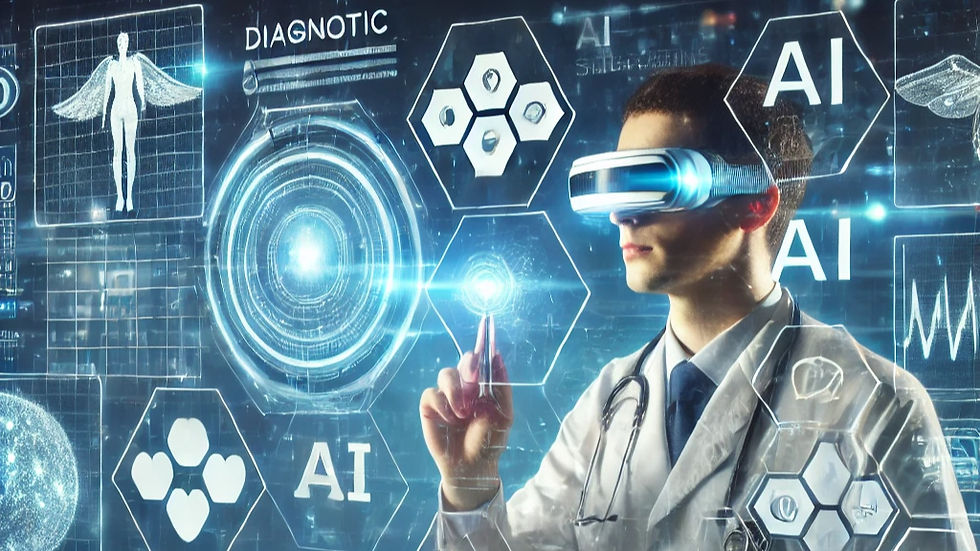Doctor's assistant: human vs AI
- Yuliia Tychynska
- Oct 18, 2024
- 2 min read
Updated: Mar 6
Although artificial intelligence is still in its early stages of development, it has already become an integral part of many sectors, with healthcare playing a significant role. Today, AI is being actively implemented in Ukrainian medicine and demonstrates impressive capabilities, reducing the burden on doctors and contributing to the improvement of services provided.

Human vs. AI scribe
Experts predict that by 2030, most institutions will implement AI assistants, as this technology becomes increasingly accessible. In the context of staff and resource shortages, they will rapidly improve and become more deeply integrated into the daily operations of healthcare facilities. Does this mean that AI medical assistants will eventually replace doctors?
The human physician’s assistant
Empathy, the ability to sympathize, and to establish trust are vital skills that are unattainable for artificial intelligence. A doctor doesn't just analyze symptoms; they see a living person behind them, with their unique history, fears, and hopes. Professional experience, intuition, and the ability to consider non-obvious factors cannot be algorithmized. It is the doctor who can support a patient and help them make decisions in difficult moments.
Strengths:
empathy and emotional intelligence;
adaptability to non-standard situations;
intuition and multi-factorial analysis based on experience.
Limitations:
fatigue;
risk of errors due to human factors;
inability to absorb all new data and research in a short time.
The AI medical assistant
In contrast, artificial intelligence in medicine is primarily about processing vast amounts of data: analyzing medical images (X-rays, MRI), identifying patterns in genetic sequences, and accurately predicting the risks of disease development and epidemics. AI is also capable of automating routine tasks, such as taking medical histories, analyzing laboratory tests, and developing individualized treatment plans.
Strengths:
fast and efficient processing of large volumes of medical data;
accurate diagnosis based on statistics and algorithms;
24/7 availability;
fatigue absence.
Limitations:
lack of emotional support for the patient;
limitations in situations that fall outside the defined algorithms;
dependence on the quality of input data and the risk of biased algorithm;
the threat of patient personal data leaks.
How humans and AI can complement each other
Artificial intelligence in medicine is increasingly viewed as a powerful assistant to the doctor, capable of fundamentally changing approaches to diagnosis and treatment. Thanks to the ability to process huge data sets – complex medical histories, laboratory results, and scans – AI can provide doctors with instant access to necessary information.
AI medical scribes are especially useful in large-scale research: analyzing massive datasets, such as genetic information, reactions to drugs in focus groups, or the medical histories of millions of people, significantly saves time, allows for quickly obtaining necessary conclusions, and even predicting the possible course of a disease.
Comparing humans and AI is incorrect, as an AI doctor's assistant was created as a reliable helper, not a competitor. Artificial intelligence`s powerful analytical capabilities will become an indispensable tool for a medical professional, while the doctor will provide humanity and empathy, ensuring that each patient receives quality treatment, compassion, and support.




Comments